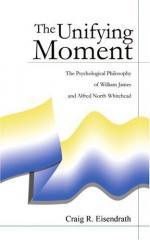|
This section contains 359 words (approx. 2 pages at 300 words per page) |
World of Scientific Discovery on Alfred North Whitehead
Alfred Whitehead was born the son of an English school teacher who later became an Anglican clergyman. As a young man, Whitehead excelled in mathematics and in 1880 he entered Trinity College, Cambridge as a mathematics student. His interests extended beyond the study of numbers, however, into other fields of a scholarly nature. At Trinity College he developed an extensive knowledge of history, literature and philosophy. The melding of philosophy with mathematics was to be the hallmark of Whitehead's later work.
In collaboration with his brilliant pupil, Bertrand Russell, Whitehead set out to uncover the principles of logic upon which, he felt, all of mathematics was based. This quest for a synthesis of the totality of mathematical knowledge was in the same spirit as Euclid's Elements and later works by more modern mathematicians such as Isaac Newton. Between 1910 and 1913 Whitehead and Russell published their three-volume work, Principia Mathematica. In it they set forth a rigorous and nearly complete elaboration of the logical foundations of mathematics.
Regarded even today as one of the towering intellectual events of the twentieth century, the publication of Principia was met with keen interest around the world and the work fell under the scrutiny of many scientists and mathematicians. For almost two decades it seemed that the methods and conclusions of the massive compilation had been fairly well accepted until Kurt Gödel presented, in 1930, a devastating proof that it was impossible to create a self-consistent set of axioms upon which arithmetic, or any other mathematical system, could be completely based. Gödel's discovery put an end to attempts, such as Whitehead's and Russell's Principia, to get at the "root" of mathematics. There seems to be no root at all, because mathematical principles are based upon assumptions which, however commonsensical or self-evident they may seem, cannot be demonstrated logically.
Whitehead continued to produce important work after Principia, including an original modification of Einstein's Theory of Relativity. But his main efforts after 1920 were in philosophy. In 1924, Whitehead moved to the United States to take up the position of Professor of Philosophy at Harvard University in New York. He died at Cambridge, Massachusetts in 1947.
|
This section contains 359 words (approx. 2 pages at 300 words per page) |


